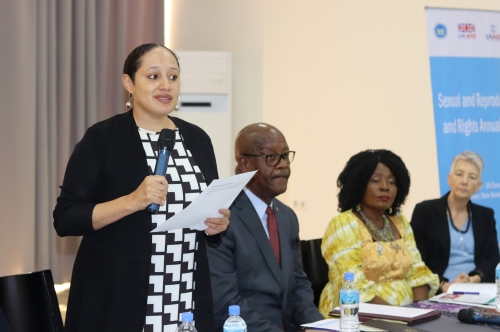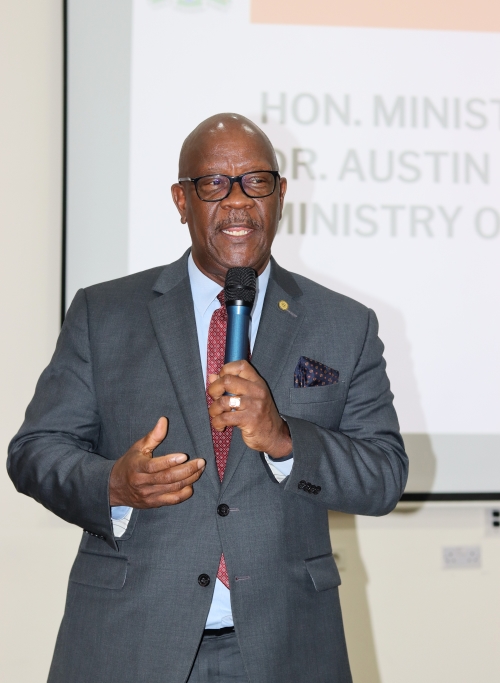FREETOWN, Sierra Leone, 20 December 2023- The Ministry of Health and the United Nations Population Fund (UNFPA) hosted the 2023 Sexual and Reproductive Health and Rights conference in Freetown from 18-20 December 2023. The Conference, which included a special focus on family planning, was organized in collaboration with the UK’s Foreign, Commonwealth and Development Office and the United States Agency for International Development.

The three-day event was attended by more than 100 national and district level health managers from across the country and featured the launch of Sierra Leone’s FP2030 commitments, as part of the FP2030 global partnership that is dedicated to advancing family planning around the world. The event highlighted the centrality of family planning to reducing maternal mortality and advancing rights and choices for women and young people.
Speaking at the event, Minister of Health, Dr. Austin Demby, emphasized that family planning has a positive influence on reducing the incidence of unintended pregnancies, unplanned births, and maternal mortality. He stated that “the Ministry of Health recognizes that investing in sexual and reproductive health, and in particular family planning, is not only the right thing to do, it is also a prudent investment to make.”
In 2023 alone, 640,000 women were using modern methods of contraception in Sierra Leone, contributing to averting an estimated 246,000 unintended pregnancies, 87,000 unsafe abortions and 1,900 maternal deaths. According to Demographic Health Surveys, use of modern contraceptives increased from 8% in 2008, to 21% in 2013, to 24% in 2019.
UNFPA Country Representative, Nadia Rasheed, in her statement, commended the Government for recognizing family planning as a vital part of the life stages model of health care delivery and as a crucial element of the strategy to lower maternal mortality. She stated that “family planning is not only essential to improving health and wellbeing, it is also critical to advancing the empowerment of women and to reducing poverty and inequality.” While applauding the increased access to family planning information and services in Sierra Leone, she underscored the need to accelerate progress in order to meet national and international targets and commitments and enable women and young people to fulfil their potential.

UNFPA currently provides more than ninety percent of contraceptive requirements for the public sector in Sierra Leone, including through support from donors such as the Government of the UK.
Ros Cooper, representing the UK's Foreign, Commonwealth and Development Office, stated that the UK is pleased to have been able to support Sierra Leone through the Saving Lives Programme. She highlighted that there is a significant unmet need for family planning in spite of advancements, and called for services to be made available and accessible through peripheral health units and outreach programmes.
Dayo Spencer, from the US Agency for International Development, noted that family planning is a cost-effective intervention that prevents maternal and newborn deaths. USAID, she said, appreciates efforts made by the Government of Sierra Leone and its partners to improve the quality and availability of family planning services, and will continue to support the strengthening of health systems and policies that will lead to better service delivery.
Dr. Evrard Nahimana, Chief of Party, World Bank/Partners In Health Quality Essential Health Services Project, emphasized that the FP2030 commitments include high-impact strategies and interventions to ensure access to high-quality family planning services. He added that these strategies and interventions need to be implemented at the last-mile to reach the most remote areas and communities.
Sierra Leone’s FP2030 commitments are aimed at ensuring universal access to rights-based family planning and sexual and reproductive health services by improving policy and legal environments, increasing access to quality services, strengthening supply chains for family planning commodities, transforming harmful social and gender norms, and securing sustainable financing.


